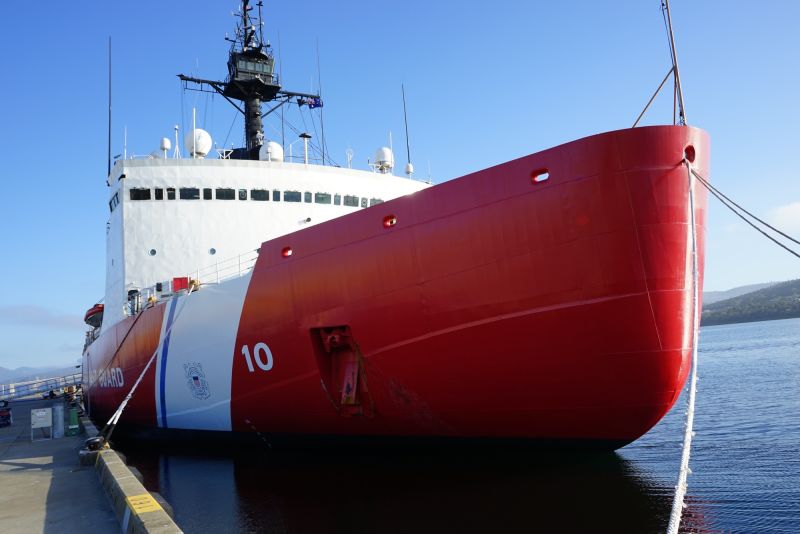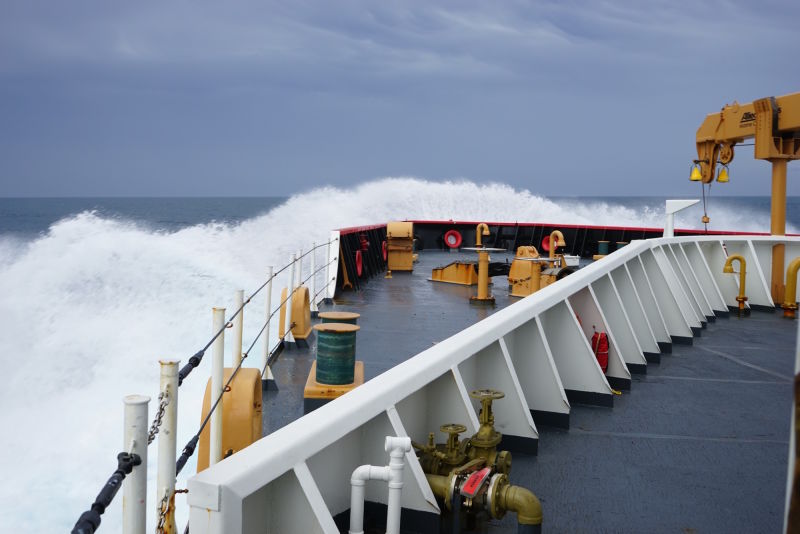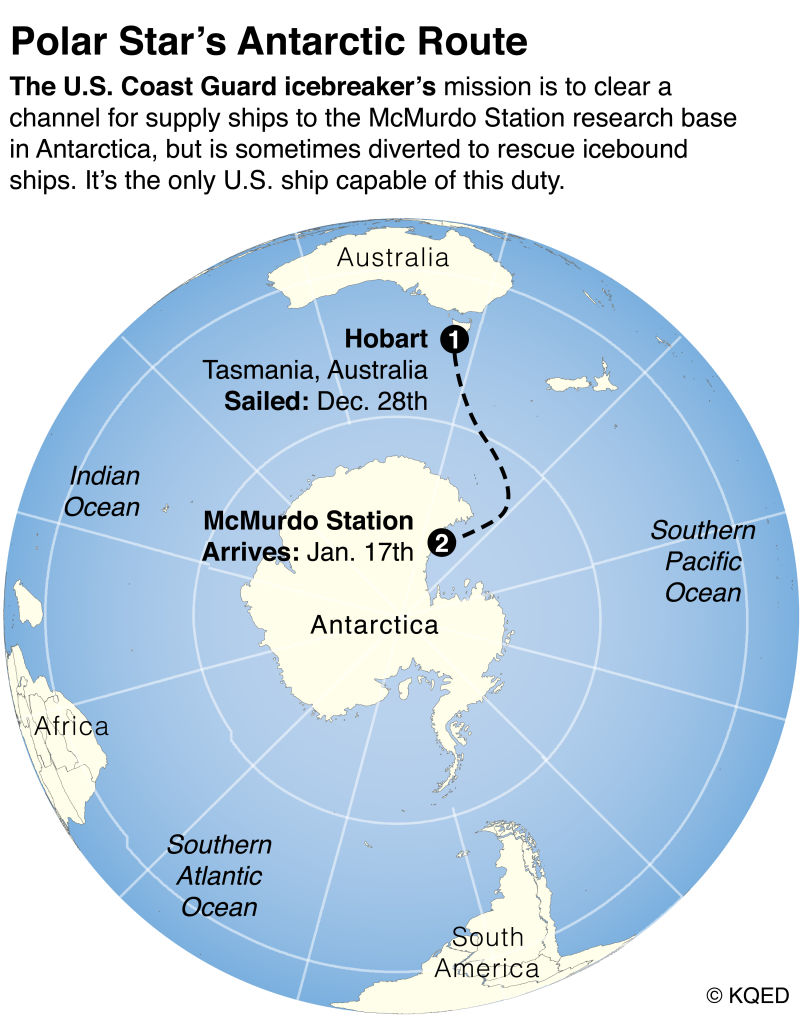The first in a series of dispatches from freelance writer Brandon Reynolds aboard the USCG icebreaker Polar Star. The ship entered the Antarctic Circle on January 3, on its annual resupply mission to the research base, McMurdo Station. It’s a critical task imperiled by the nation’s aging, shrinking fleet of ice-breaking ships.
Aboard the Disoriented Express
It’s New Year’s Eve, I’m pretty sure. Since I left the United States, I’ve leapt forward a day, landed in Hobart, Tasmania, ate wallaby tacos at a food festival beside the harbor, and set sail on a ship called Polar Star, heading south to Antarctica, but because the world is round, we’re also heading east, toward South America. See for yourself. Don’t look on a map, maps lie. Look on a globe.
Anyway, soon after departure came an announcement that we were leaping another two hours forward, time zones be damned, to catch up to where we’re heading. It’s the law of the sea, I suppose. Somewhere out there is ice, which will look, I imagine, like nothing so much as nothing at all — like the ocean doesn’t end so much as is erased past a certain point. Which is what the ship is here to correct, to restore ocean to the nothingness. It’s an icebreaker. On the other side of all that ice is Antarctica, where the clocks are set two hours ahead to McMurdo Standard Time, as, now, are ours.
So I think it’s New Year’s Eve. Scheduled for later, I hear is a party out on the helipad, or the fantail, whatever the back end of the ship is. Fake champagne will be served and everyone will be caught wearing the exact same thing and no one will be scandalized by this. We’re 21 hours ahead of the West Coast, so we’re practically the first people in the world who will celebrate the new year, and so this, the uniforms and the pretending-at-booze, this is the future.

Into the Deep Freeze

